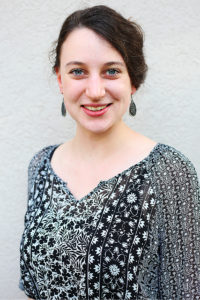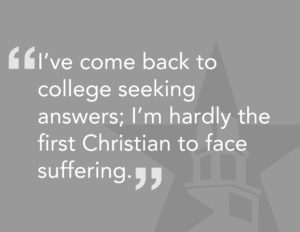“May the peace of the Lord Jesus Christ go with you, wherever he may send you. May he guide you through the wilderness, protect you through the storm. May he bring you home rejoicing at the wonders he has shown you; may he bring you home rejoicing once again into these doors.” – Traditional Blessing
 There were no doors where I was standing. Only scrubbed brush dotting the landscape and the distant lakes. Flowers grazed my knees; Mt. Hermon rose impressively to the west. And the barbed wire, running haphazardly by my feet, old, rusted, and still sharp. The physical features reflected the paradox: how could such horrible violence exist in such beauty?
There were no doors where I was standing. Only scrubbed brush dotting the landscape and the distant lakes. Flowers grazed my knees; Mt. Hermon rose impressively to the west. And the barbed wire, running haphazardly by my feet, old, rusted, and still sharp. The physical features reflected the paradox: how could such horrible violence exist in such beauty?
There’s a mountain in northern Israel where you can stand and see the border of Syria. It’s a tourist magnet; at eight in the morning people milled around, drinking coffee from the gift shop and taking selfies with a bombed-out tank on the neighboring hill. After all, the border is unremarkable: only a dirt road in the distance. There’s no gunfire, no explosions, no bodies. Snapping a few photos of the line about covers it. Check it off the list, scratch it off the planner, make a Facebook post and you’re done. Back to first-world paradise.
I sound callous. It’s a defense mechanism, for I was simultaneously horrified by that reaction and tempted towards it. Standing, looking at that dirt road was one of the most uncomfortable moments of my life. What right did I have to be there? I’m an American. Eight days later I crammed myself into an airplane seat and returned to a home where I can go walking at midnight without qualm. To look at that brown line was to be aware of how much my life diverged from people living on the other side. There’s no reason for it to be so. I did nothing to deserve my birth.
Quite outside of myself, the violence of this place was enough to tempt me. I’ve never seen a dead body and there are millions twenty miles away. I could feel the lack of peace, as I could feel the sun beating down on my neck. What kind of a God allows such a thing to happen? What kind of a God selects some people (me) to escape it and others (a whole country) to bear it? I tried to pray, to reclaim some of the faith that had been so strong a half hour before. Nothing came out. I had nothing to say to God. So I just stood there, aghast.
Eventually, years of church training kicked in. With no words of my own, I used the church’s words. Over and over in my head. “May the peace of the Lord Jesus Christ go with you…” My mental voice choked every time I got to the last line. “May he bring you home rejoicing once again into these doors.” What doors? Heaven? I’ve prayed that prayer hundreds of times, over my friends, over my professors, over my church. This was my first time saying it alone, saying it over people I didn’t know, people whose lives will likely never intersect with mine. When it was time to go, I was glad.
 Three months later the memory still makes me uncomfortable. I’ve come back to college seeking answers; I’m hardly the first Christian to face suffering. Ideas must exist somewhere in the annals of two thousand years of history that could help. And there were ideas, but not answers. No one concrete definition or ontological proof eased my mind. The strongest discovery was this: my discomfort is necessary. Not a state of constant unrest and anxiety, but a state of mind that recognizes suffering. A state of mind that doesn’t allow for ignorance, one that cannot walk away from my brothers and sisters across the border. There is no theological band-aid for this question. It needs to be felt and wrestled over.
Three months later the memory still makes me uncomfortable. I’ve come back to college seeking answers; I’m hardly the first Christian to face suffering. Ideas must exist somewhere in the annals of two thousand years of history that could help. And there were ideas, but not answers. No one concrete definition or ontological proof eased my mind. The strongest discovery was this: my discomfort is necessary. Not a state of constant unrest and anxiety, but a state of mind that recognizes suffering. A state of mind that doesn’t allow for ignorance, one that cannot walk away from my brothers and sisters across the border. There is no theological band-aid for this question. It needs to be felt and wrestled over.
Such an approach has flaws. Sitting in discomfort can lead to a passive faith, one that never acts. It can endorse a false dichotomy between the unease of the person sitting and the suffering that caused the sitting, as if those two things are equal. It can cause doubt and questioning of the faith. But for all that, I argue that discomfort is necessary. We cannot walk away from suffering or flee towards solutions without first feeling compassion. One of the helpful theological perspective I stumbled upon is a vision of the church as God’s instrument of healing in the world. It is, in some ways, on us to prevent violence, to spread love, to give and gracefully receive mercy. This vision is impossible without a willingness to be uneasy. To reflect “the peace of the Lord Jesus Christ” requires us to be uncomfortable.
Anna is a junior majoring in writing.
